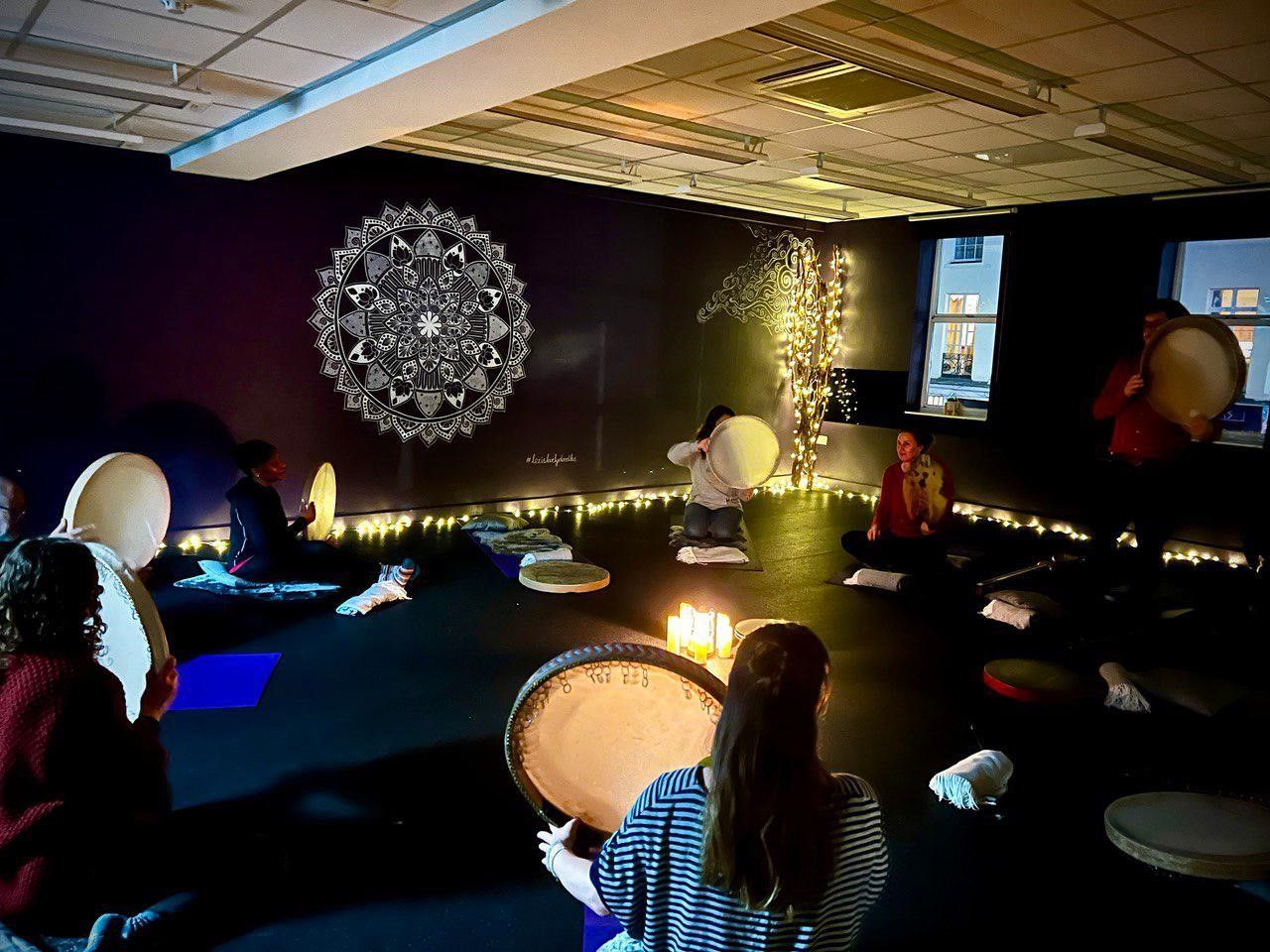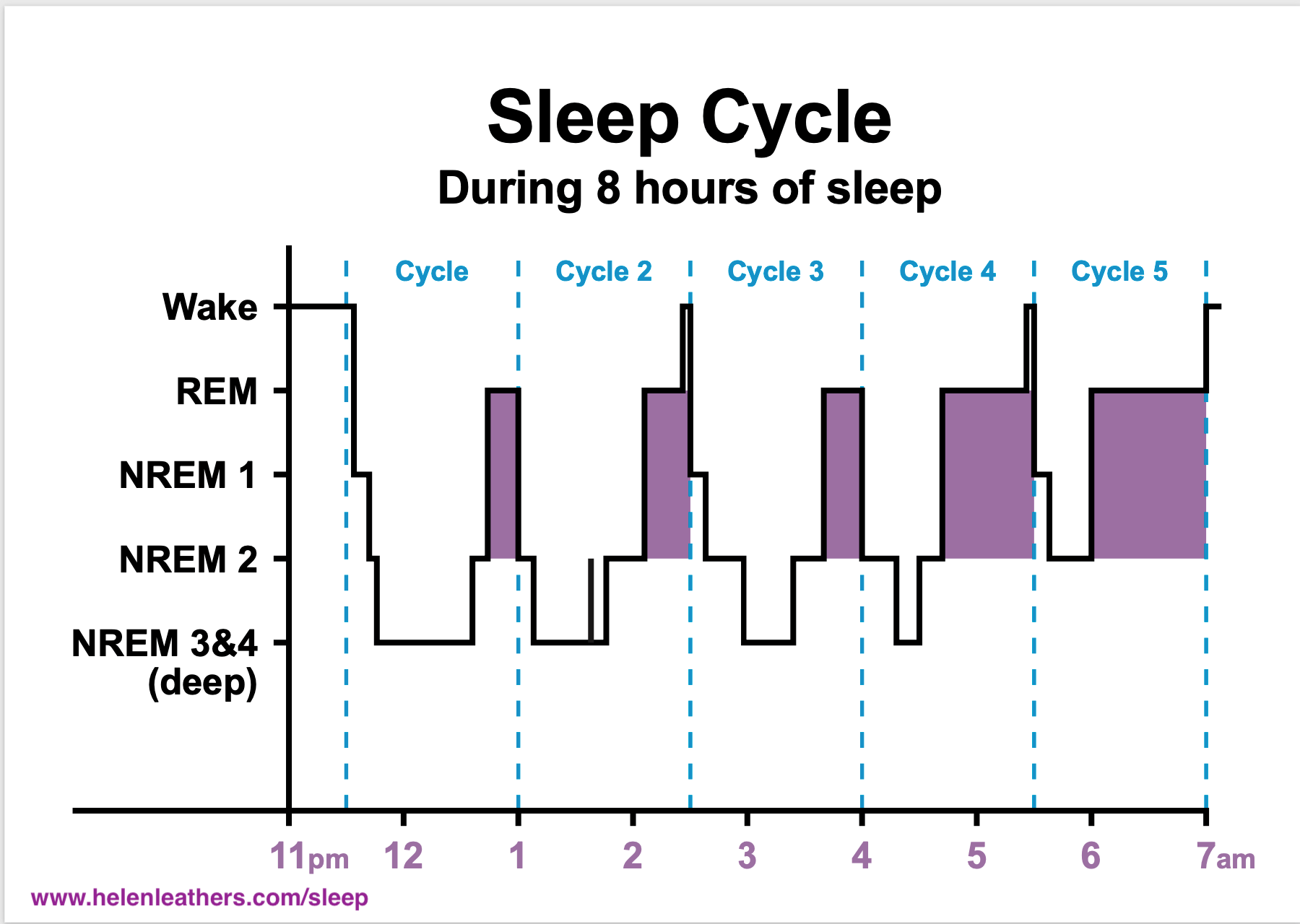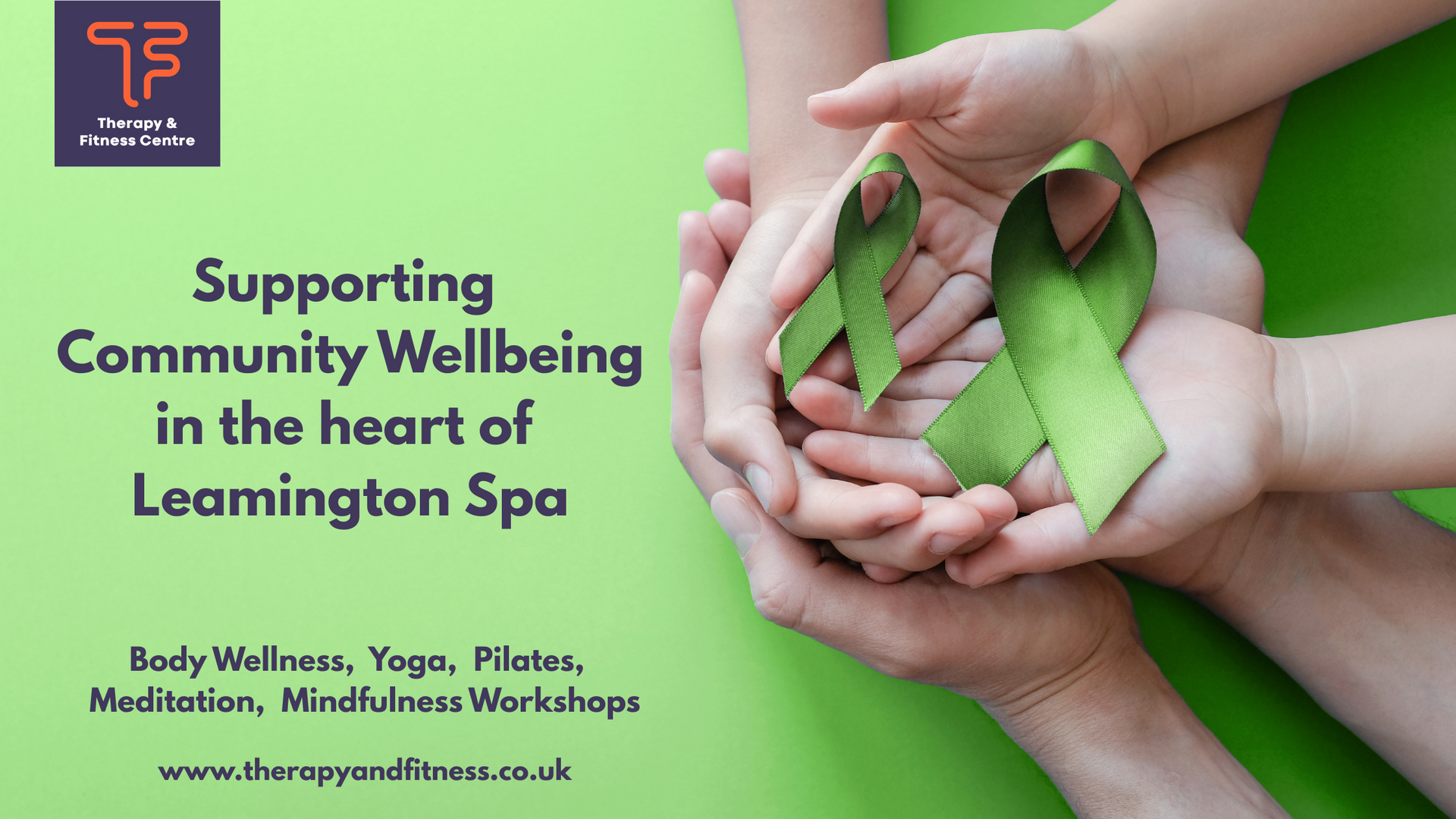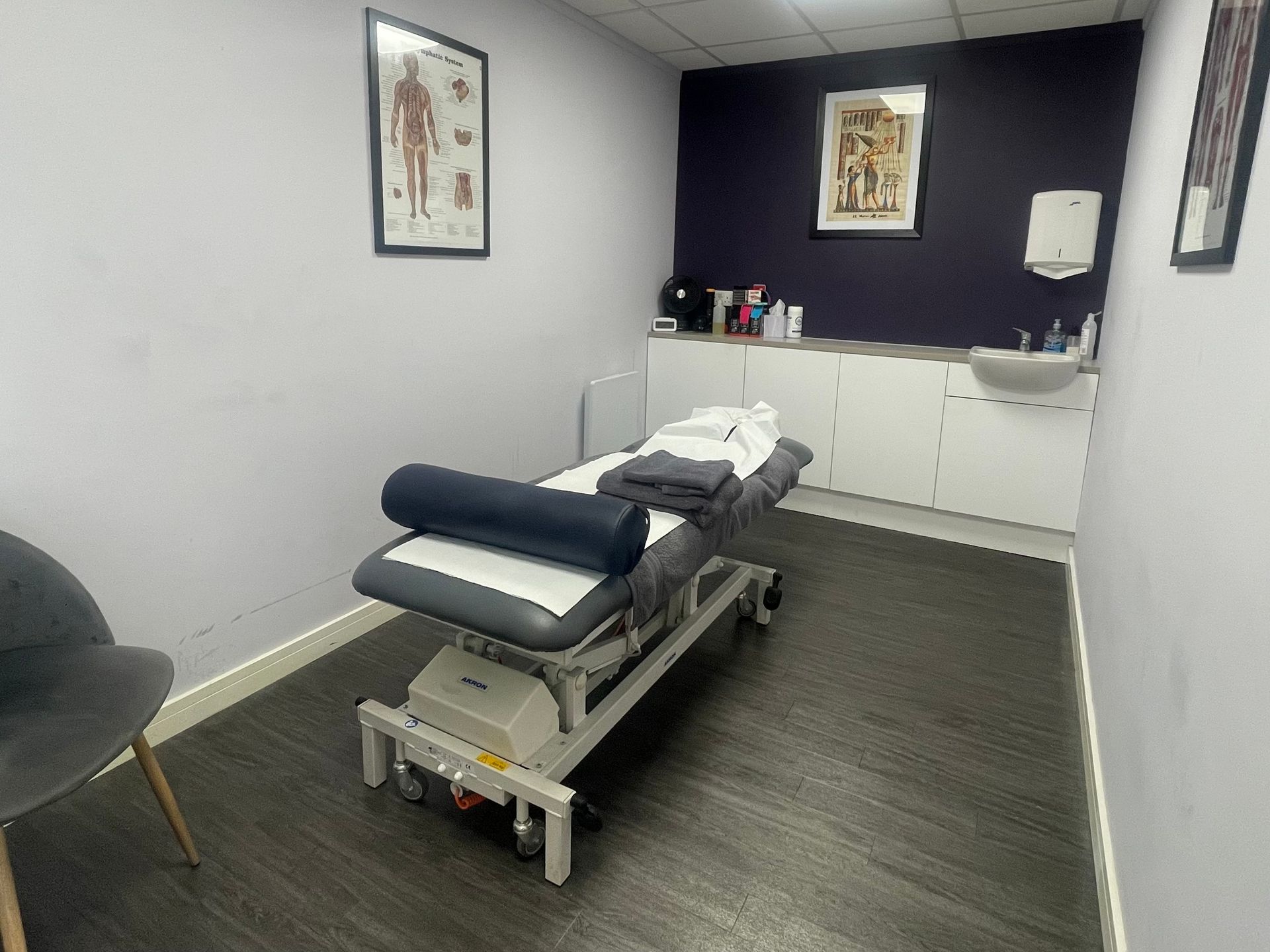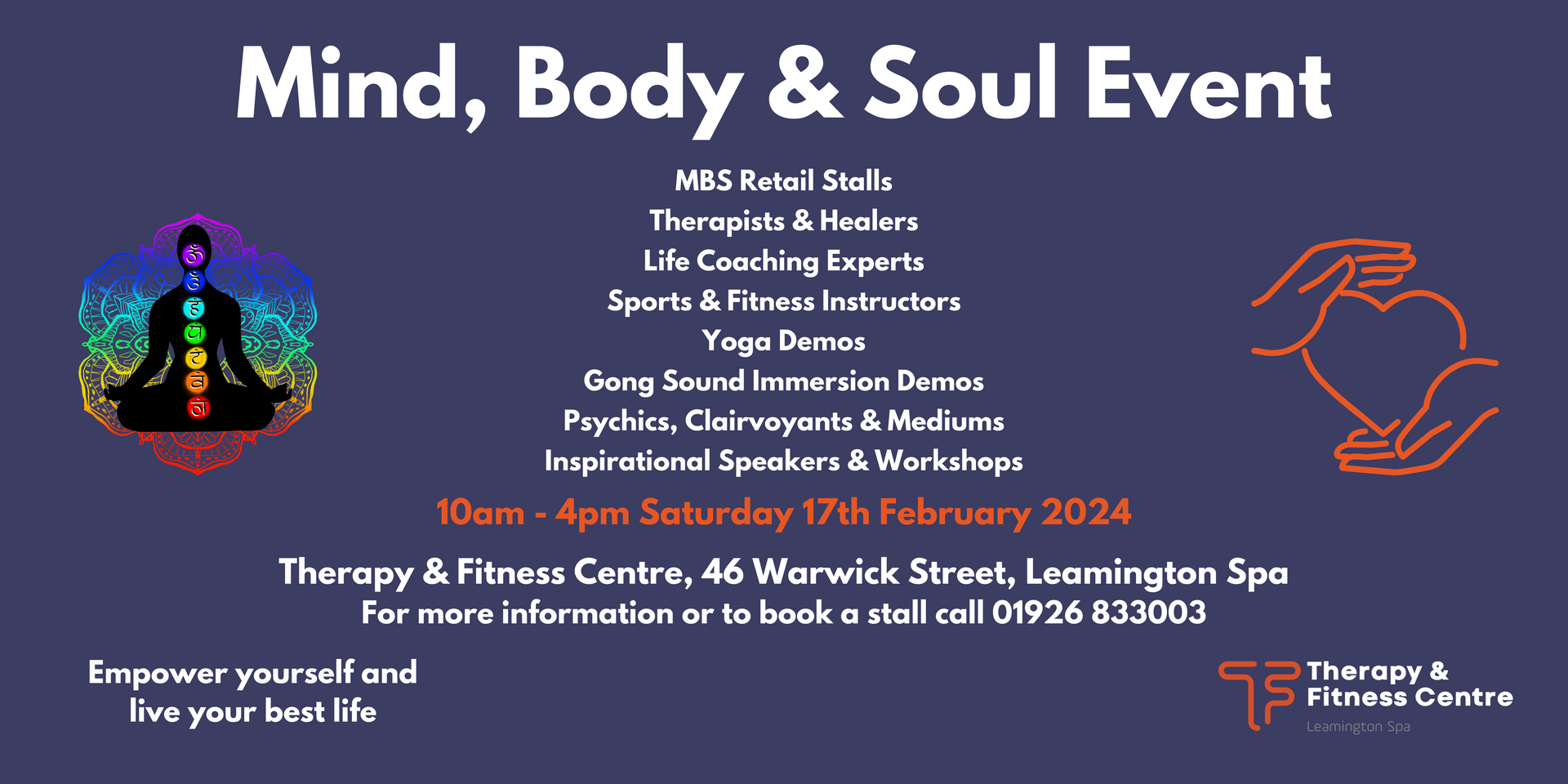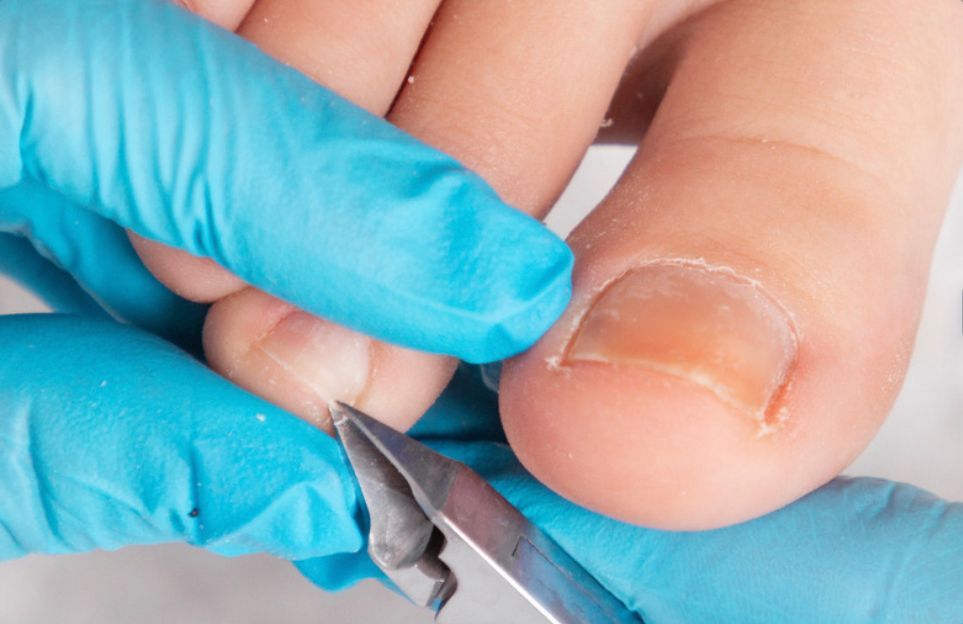Why do we need 8 hours of sleep a night?
So why do we need so much sleep?
The consensus is that we need 8 hours of sleep a night.
Let's look at that in more detail.
Most people know that we have different phases of sleep:
· Light sleep
· Deep sleep
· R.E.M. or Rapid Eye Movement sleep
But what is less well known is that we have sleep cycles throughout the night. Each sleep cycle lasts approximately 90 minutes and the ideal number per night is 5.
5 x 1.5 hours = 7.5 hours
plus 20-30 minutes to drop off gives us 8 hours (approximately)
However, not all sleep cycles are equal, and we need to go through each one in turn to ensure we get the most benefit from our sleep and stay healthy. As you can see from this diagram each sleep cycle has varying amounts of the different types of sleep.
*Note: NREM is non-REM sleep. REM is marked in purple.
What happens during the different stages of sleep?
During Non-REM sleep the body is healing, repairing, regenerating and growing.
During REM sleep the emotional and psychological stuff of life is processed and memories are stored. This is when our brains bring together memories from past and current dilemmas and help us with problem solving and strategies. When we say we need to 'sleep on it' about a particular situation, what we need is the REM type of sleep.
In the early part of the night, particularly during the first 3 sleep cycles, we have proportionately more Non-REM sleep than in the later part.
So, the danger is that, if we cut our sleep short by getting up early, we miss out on a huge chunk of the extremely useful REM sleep.
There are many benefits, both physically and mentally, of having good sleep:
· Improved immunity
· Increased emotional intelligence
· Quicker response times
· We can become less rational and more reactive to situations during the day
· Boost focus and concentration
· Decrease stress
· Reduces ageing
· Increase your confidence
· Increase your energy levels
· Reduces anxiety and depression
· Maintain a healthy weight
So, if you are looking to get up earlier in the mornings, make sure you work backwards 8 hours and calculate what time you need to be getting your head down to ensure you still get your 8 hours of sleep a night.
And if you find yourself waking in the night, that's fine. Take a look at the chart again and you'll see that at the end of the 2nd and 4th sleep cycles, our brainwaves pop up a little into wakefulness. This is when, if your bladder is anywhere near full, it will encourage you to take a trip to the bathroom. You're probably not waking (in most cases) because you need to pee. More than likely you're nearly awake anyway so your body decides to notice it needs it.
The trick to going back to sleep and into your next sleep cycle is to stay in a nice super-relaxed state, so here are some tips:
Don't...
· Put a light on
· Speak
· Pick up your phone
· Do anything that spikes your brainwaves and gets you thinking
Do...
· Move slowly (if you do need to take that trip to the bathroom)
· Just tell yourself you're at the end of a sleep cycle (this works amazingly well)
· Focus on your breathing or do another simple meditation technique to keep your brainwaves sleepy
These should ensure that you make the most of all the different stages of sleep and give your body and mind the best possible opportunity to stay healthy and energised.
We see many people some whom mention how difficult they find it is to get to sleep or get back to sleep once woken.
Signs of sleeping difficulty may include an inability to focus during the day, frequent headaches, irritability, day time fatigue, waking up too early, waking up throughout the night or taking several hours to fall asleep.
Insomnia has many causes, including stress, anxiety, depression, poor sleep habits, circadian rhythm disorders, such as jet lag and taking certain medications.
Here are some tips for beating insomnia
· Wake up at the same time every day
· Eliminate alcohol and stimulants like nicotine, caffeine and chocolate before bed
· Limit daytime naps
· Exercise regularly
· Do not eat or drink before going to bed
· Make your sleeping environment comfortable
· Avoid TV and screens before bed
· Make a to-do list
· Lavender oil in a diffuser or a few drops on your pillow or handkerchief placed near to your bed
· Relaxing massage or reflexology
· Plenty of natural sunlight and fresh air during the day
· Establish a regular, relaxing bedtime routine
· Warm bath or shower before bed
If you are woken through the night with thoughts, keep a pen and notebook by the side of your bed and write down anything that comes into your head. You can always do this with the light off because subconsciously you are off loading your mental stress and you will know what you have written the next morning!
Written by:
Lisa Moore Sports and Holistic Therapist and Author
www.leamingtontherapycentre.co.uk
and
Helen Leathers Transformational Women’s Coach, Author and Trainer

